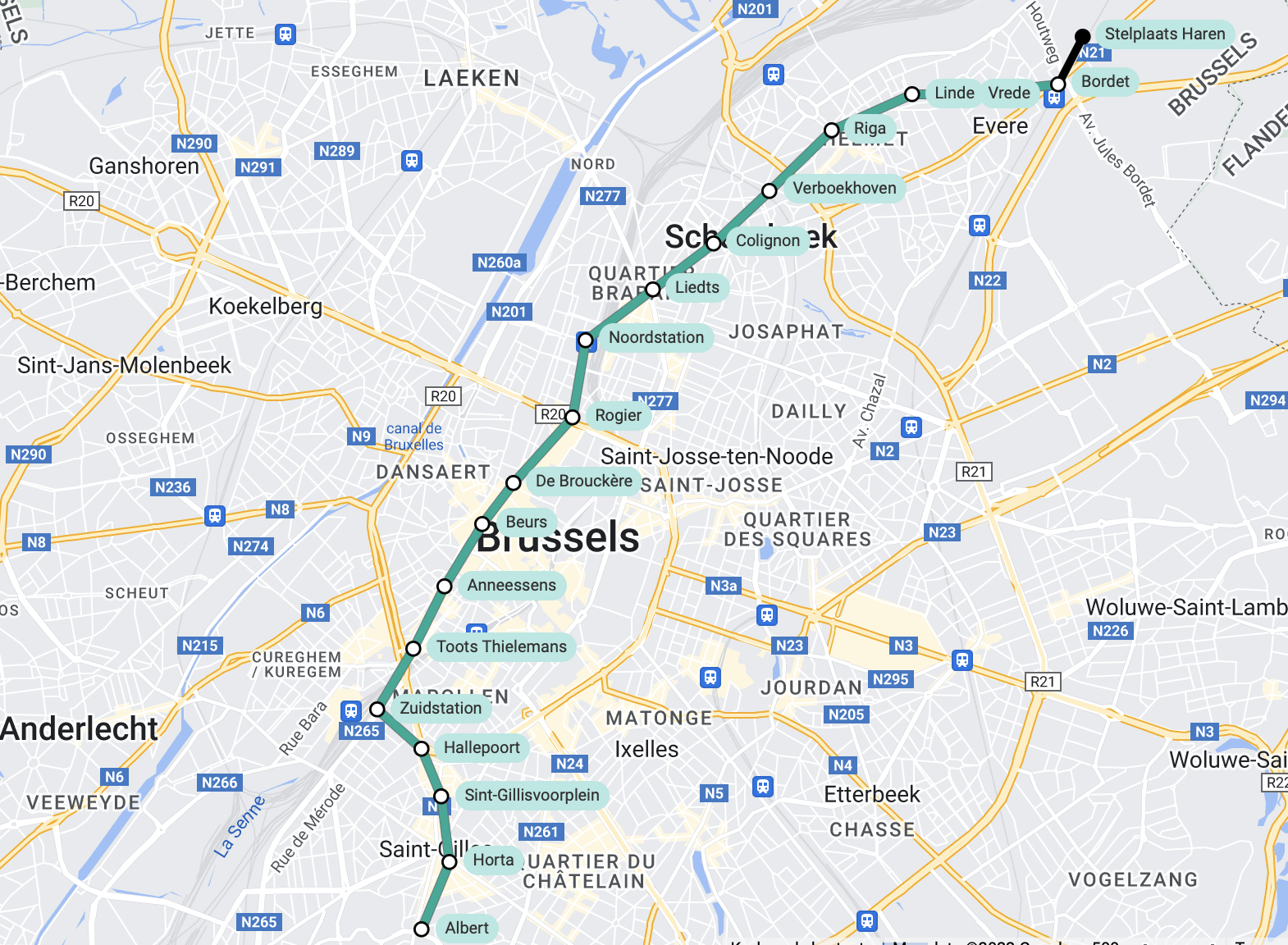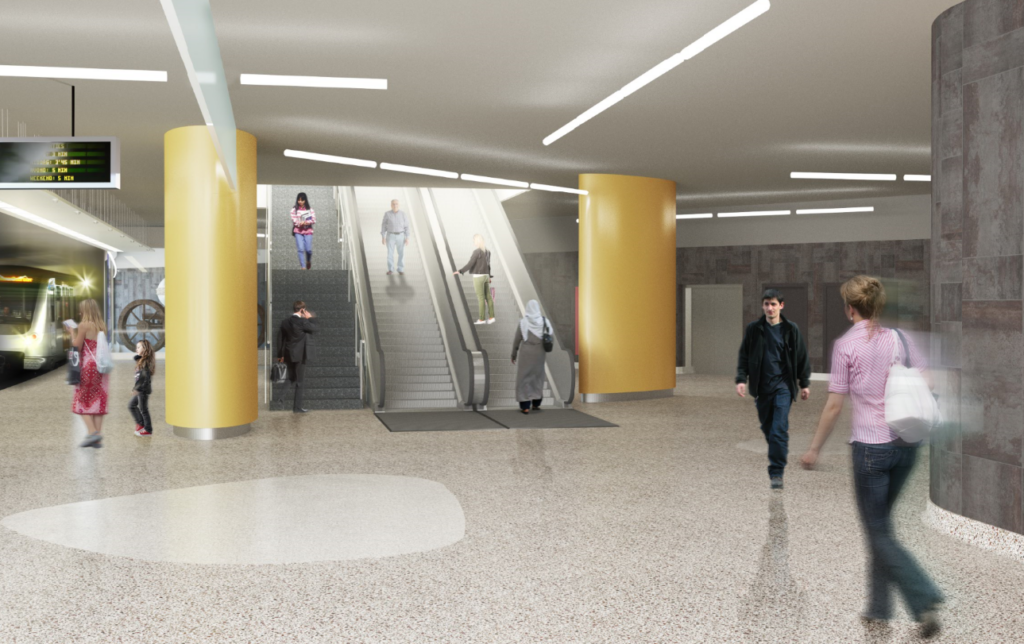Brussels is spending billions on a new metro line but a number of mobility experts are opposed, arguing that it will cause mobility in some districts to deteriorate.
The project's detractors say that disproportionate costs are being incurred for very little environmental gain, De Standaard reports. Moreover, businesses in areas where the line is being constructed are experiencing a reduction in footfall, as customers avoid the busy areas.
“Everyone avoids this street. I estimate that our turnover has dropped by half,” one shop owner told De Standaard. “The digging will take at least another three years. I hope we can hold out that long.”
Another told of how “trade is bleeding to death here. We only earn a third of what we did before the construction works.”
Delays threaten to prolong the suffering
Some of the construction work, for example on Boulevard Stalingrad, has already been set back by several months. The line, which will see the metro continue to the NATO headquarters in Evere (north Brussels), won't be completed until 2032 at the earliest.
More complex still will be the construction of seven new stations over a length of five kilometres. This will entail seven gigantic building sites, right in the middle of the densely populated municipalities of Schaarbeek and Evere.

The metro line will better connect the south of Brussels with the rest of the region.
Since federal developer Beliris applied for planning permission in mid-February, criticism has been pouring in from local traders and residents who fear the same prolonged, heavy construction.
Blowing the budget
While the new metro was budgeted at €850 million in 2009, estimates now run to €2.3 billion, all while Brussels is already burdened with €8 billion in debt.
It is unclear how the Capital Region will foot this bill; however, the Brussels government has already set aside €148 million for 'unforeseen costs'.
“We support any investment in public transport, but we are sounding the alarm on this dossier,” said Cathy Macharis, chairwoman of the Regional Mobility Commission.
Related News
- Brussels transit company STIB will replace 411 diesel buses by 2030
- Assaults on STIB workers as high as two per day
“The price tag is sky-high; it has already tripled since the first cost estimate. What's more, we can expect additional costs when work begins on the second phase. At the same time, studies show that the new metro line will reduce the number of car kilometres driven in Brussels by barely 0.6%. So disproportionate costs are being incurred for very little environmental gain.”
The Regional Mobility Commission is also not convinced by the promised time savings: “The metro will be faster than the existing tram, but the stations will be built 30 metres deep. Just going down to the platforms will take four minutes,” said Macharis.
“There will be no time gain over shorter distances. The metro will also have fewer stops than the current tram, so many users will have to walk further. The arrival of the metro will ironically worsen mobility in some neighbourhoods.”
Government must ‘seriously examine’ alternatives
The committee points out that it has never been properly investigated whether the existing tram could be made smoother by adapting the above-ground infrastructure.
They’re urging the government to “seriously” examine potential alternatives to the metro tunnel, including giving cars less space above ground so that the tram could run more smoothly and there would be more space for pedestrians and cyclists.
“This is how you get the mobility shift that Brussels needs. That vision of the future is missing from the current plan,” said Macharis.
But Brussels public transport company STIB said in an online statement that independent study bureaus have examined possible alternatives.

The city has already invested heavily in new metro carriages. Credit: STIB
“An extension of the tram alone turned out to be insufficient for the mobility needs in the north of Brussels,” said STIB CEO Brieuc de Meeûs.
The Brussels Groen party has always been critical of the high cost of the metro yard, but Brussels Minister of Mobility Elke Van den Brandt (Groen) supports the project.
“A fully underground north-south connection will bring reliable public transport to large parts of the capital. A metro stop can be guaranteed service every 2.5 minutes, while a tram cannot – they have to stop at traffic lights.”

